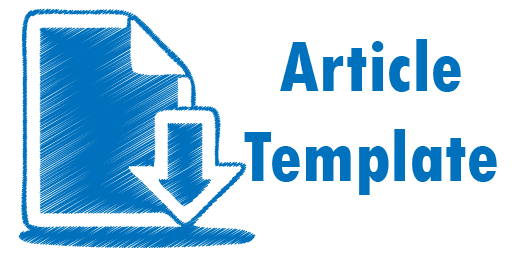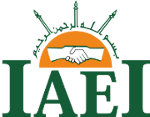The Transformation of Islamic Social Finance in Turkiye
Historical Trajectories and Contemporary Developments
DOI:
https://doi.org/10.47498/tasyri.v17i1.4546Keywords:
Islamic Social Finance, Islamic Philanthropy, Waqf, Zakat, TurkiyeAbstract
This research examines the evolution of Islamic social finance in Turkey, focusing on zakat and waqf, from both historical and contemporary perspectives. Historically, Islamic social financial management in Turkiye has developed since the Ottoman Empire, with waqf institutions playing a crucial role in social and economic empowerment. Following the establishment of the secular republic, waqf management was placed under government regulation through institutions such as Vakıflar Genel Müdürlüğü (VGM), which oversees the administration and distribution of waqf assets. Despite operating within a secular framework, Islamic principles continue to underpin the management of zakat and waqf in Turkiye. Furthermore, the potential of zakat and waqf in Turkiye is substantial, given that the majority of the population is Muslim and charitable giving is deeply embedded in the culture. This study finds that, if managed optimally, zakat and waqf can serve as effective instruments for poverty alleviation and reducing social inequality. Both government agencies and private institutions, including NGOs, have played a significant role in advancing Islamic social finance. With proper governance and strategic implementation, Islamic social finance has the potential to enhance public welfare and serve as a model for other Muslim-majority countries seeking to develop philanthropy-based economic empowerment.
Downloads
References
Ab Latif, S. N. S., Mohd, S., & Mat Salleh, S. F. Z. (2024). Implications of Corporate Social Responsibility Practices Based on the Al-Umūr Bi Maqāṣidihā Method. International Journal of Entrepreneurship and Management Practices, 7(25), 355–366. https://doi.org/10.35631/ijemp.725029
Abdullah, A., & Saiti, B. (2016). A re-examination of musharakah bonds and Waqf development: The case of Singapore. Intellectual Discourse, 24, 541–562.
Afifah, Y., Ragilita, R., & Pranata, M. H. (2023). Synergy of BAZNAS, LAZNAS, and BWI: Exploring the Potential of Zakat and Waqf for Social and Economic Welfare. Economic: Journal Economic and Business, 2(2), 54–59. https://doi.org/10.56495/ejeb.v2i2.689
Ahmad, H. M., & Ahmad, H. I. (2017). Concept of Sadaqaat in Islam. Al-Az̤vā, 32(47), 33–42.
Al-Hanafi, A. al-S. M. b. M. b. M. (1997). Risalah fi Jau’az Waqf al-Niqud (A. al-A. S. A. Shaghif (ed.)). Dar Al-Kutub al-’ilmiyyah.
Ansori, M. I. (2023). Efektivitas Pendistribusian Zakat pada Program Rehab Rumah Layak Huni Mustahiq Tahun 2022 (Studi pada BAZNAS Kabupaten Sidoarjo). Journal of Cross Knowledge, 1(2), 226–233.
Ascarya, & Tanjung, H. (2021). Structures of Healthcare Waqf in Indonesia to Support SDGs. In Islamic Wealth and the SDGs: Global Strategies for Socio-economic Impact (pp. 305–324). Springer.
Aysan, A. F., Dolgun, M. H., & Turhan, M. I. (2013). Assessment of the participation banks and their role in financial inclusion in Turkey. Emerging Markets Finance and Trade, 49(sup5), 99–111.
Azrai Azaimi Ambrose, A. H., Gulam Hassan, M. A., & Hanafi, H. (2018). A proposed model for waqf financing public goods and mixed public goods in Malaysia. International Journal of Islamic and Middle Eastern Finance and Management, 11(3), 395–415.
Azrak, T. (2022). The Roles of Cash Waqf in Improving the Economic Welfare: Case Study of Turkey. The Journal of Management Theory and Practice (JMTP), 3(1), 42–47. https://doi.org/10.37231/jmtp.2022.3.1.200
Buluş, A. (2009). Sivil Toplum Kuruluşlarına Tarihsel Bir Örnek: Osmanlı Vakıfları. Sosyal Ekonomik Araştırmalar Dergisi, 8(16), 20–36.
Ertunç, H. (2014). İslam hukuk tarihinde vakıflar ile batı kültüründeki benzeri kurumların karşılaştırılması. Dünya Vakıflar Konferansı (World Foundations Conference), 345–371.
Fitriani, Y., Ibrahim, A., & Zulhilmi, M. (2024). Analisis Relevansi Tata Kelola Wakaf di Turki Sebagai Perkembangan Wakaf Produktif di Aceh. Jurnal Ilmu Ekonomi Dan Implementasi, 1(2), 134–151.
Göçmen, I. (2014). Religion, politics and social assistance in Turkey: The rise of religiously motivated associations. Journal of European Social Policy, 24(1), 92–103.
Iskandar. (2020). Implementasi Wakaf Uang pada Masa Kesultanan Utsmaniyah. Al-Hisab: Jurnal Ekonomi Syariah, 1(1), 1–7.
Iskandar, I., Irsyamuddin, D., Dwiyan, E., & Ihsan, H. (2023). Waqf Substantial Contribution Toward the Public Healthcare Sector in the Ottoman Empire. Journal of Critical Realism in Socio-Economics (JOCRISE), 1(3), 275–294. https://doi.org/10.21111/jocrise.v1i3.21
Iskandar, I., Kurlillah, A., & Munadiati, M. (2023). Roles of Waqf in Supporting Economy Recovery Post Covid-19 Pandemic. ZISWAF: Jurnal Zakat Dan Wakaf, 10(01), 65–82.
Kalkavan, H., & Baş, H. (2021). Neoliberalizm ve İslam Ekonomisinin Sosyal Refah Yaklaşımlarının Karşılaştırılması. Adam Academy Journal of Social Sciences, 11(1), 141–168.
Kaplan, H. E. (2020). Islamic Financial Institutions in The World and Turkey. JOEEP: Journal of Emerging Economies and Policy, 5(1), 90–100.
Karavardar, A., & Akar, S. (2022). Osmanli devleti̇ fi̇nans tari̇hi̇ni̇n fi̇nansman modelleri̇. Accounting and Financial History Research Journal, 22, 81–102.
Kayadibi, S., Hamid, Z., & Saad, N. M. (2017). the Contribution of Waqf Institutions in Malaysia and Turkey in Improving the Socio-Economic Conditions of the Society. Turkish Journal of Islamic Economics, 4(1), 1–29. https://doi.org/10.15238/tujise.2017.4.1.1-29
Kunhibava, S., Muneeza, A., Khalid, M. B., Mustapha, Z., & Sen, T. M. (2024). Islamic Social Finance: Law and Practice in Malaysia (S. Kunhibava, A. Muneeza, M. B. Khalid, Z. Mustapha, & T. M. Sen (eds.); pp. 1–21). Springer Nature Singapore. https://doi.org/10.1007/978-981-97-1410-0_1
Mellyan, M., & Inayatillah, I. (2022). Konsep Filantropi Islam Di Masa Pandemi Covid-19. At-Tasyri’: Jurnal Ilmiah Prodi Muamalah, 13(2), 157–171. https://doi.org/10.47498/tasyri.v13i2.859
Mubarrak, H., Iskandar, I., Hamdiah, H., & Munir, B. (2024). Pengembangan Waqaf Temporer Bagi Pembangunan Ekonomi Umat: Suatu Kajian Penerapannya di Turki dan Indonesia. IHTIYATH : Jurnal Manajemen Keuangan Syariah, 8(1), 14–28. https://doi.org/10.32505/ihtiyath.v8i1.8165
Mutaqin, E. Z., & Guntoro, D. (2023). Optimization and Realization of Productive Waqf Implementation Through Cash Waqf Linked Sukuk (CWLS) SW001 Scheme at Achmad Wardi Eye Hospital. Al-Awqaf: Jurnal Wakaf Dan Ekonomi Islam, 16(1), 23–40.
Najmul Hasan. (2008). Social Security System of Islam With Special Reference To Zakah. Islamic Economics Research Centre, May, 1–42. http://zakat.gop.pk/sites/zud.pitb.gov.pk/files/zakat social security.pdf
Omer, S. (2024). Quba’mosque In The Works Of Early Muslim Visitors And Scholars. Journal Of Islam In Asia (E-Issn 2289-8077), 21(1), 109–138.
Ozdemir, M., Savasan, F., & Ulev, S. (2023). Leveraging financial inclusion through Islamic microfinance: A new model proposal for participation banks in Turkiye. Borsa Istanbul Review, 23(3), 709–722.
Özsaraç, Y. (2019). Osmanlı Para Vakıflarından Türkiye Vakıflar Bankasına.
Parlakkaya, R., & Çürük, S. A. (2015). Islamic Microfinance as a Tool for Powerty Reduction and Feasibility in Turkey. International Journal of Islamic Economics and Finance Studies, 1(2), 61–86.
Rahim, R., Husni, T., Aprayuda, R., & Fadhel, R. (2020). The Influence of Zakat, Infaq, Sadaqoh (ZIS) on Poverty Allevation. Maqdis: Jurnal Kajian Ekonomi Islam, 5(2), 101–114.
Rashid, Z. A. N., Mazri, N. M., & Rosele, M. I. (2022). Masjid Sebagai Pusat Rawatan Sementara Ketika Wabak: The Role of Mosque as a Medical Treatment Centre. ALBASIRAH JOURNAL, 12(2), 95–106.
Razak, S. H. A. (2020). Zakat and waqf as instrument of Islamic wealth in poverty alleviation and redistribution: Case of Malaysia. International Journal of Sociology and Social Policy, 40(3/4), 249–266.
Ridha, G. K., & Azzahra, N. (2024). INTEGRASI EKONOMI SYARIAH DALAM SISTEM KEUANGAN: PERAN EKONOMI ISLAM DALAM ERA MODERN. Islamologi: Jurnal Ilmiah Keagamaan, 1(1), 220–233.
Salam, A. N., & Iskandar, I. (2021). Integration of Green Sukuk and Cash Waqf Linked Sukuk for Financing Agriculture Sustainable. Asy-Syari’ah, 23(2), 345–364. https://doi.org/10.15575/as.v23i2.24059
Shah, S. S. H. (2023). The Concept of Zakat and its Importance and Need in Islam. HITEC ISLAMICUS, 1(1), 28–44.
Sofuoğlu, H., & Iskandar, I. (2024). Evaluating the Efficiency of Islamic Financial Institutions in Managing Cash Waqf in Indonesia. Journal of Islamic Economic and Finance, 10(2), 394–444. https://doi.org/https://doi.org.tr/10.54863/jief.1540049
Ülev, S. (2022). İslami Mikrofinans: Bir Literatür İncelemesi. Adam Academy Journal of Social Sciences, 12(1), 169–210.
Umar, U. H. (2021). Adapting the Al Rajhi Waqf model to mitigate the impact of covid-19 on the Ummah: a lesson to Muslim philanthropists. In COVID-19 and Islamic Social Finance (pp. 133–147). Routledge.
Zauro, N. A., Zauro, N. A., Saad, R. A. J., & Sawandi, N. (2020). Enhancing socio-economic justice and financial inclusion in Nigeria: The role of zakat, Sadaqah and Qardhul Hassan. Journal of Islamic Accounting and Business Research, 11(3), 555–572.
Downloads
Published
Issue
Section
License
- Hak publikasi atas semua materi informasi yang tercantum dalam situs jurnal ini dipegang oleh dewan redaksi/editor dengan sepengetahuan penulis. Pengelola Jurnal akan menjunjung tinggi hak moral penulis.
- Aspek legal formal terhadap akses setiap informasi dan artikel yang tercantum dalam situs jurnal ini mengacu pada ketentuan lisensi Creative Commons Atribusi-Non Commercial-No Derivative (CC BY-NC-ND), yang berarti bahwa hanya dengan izin penulis, informasi dan artikel Jurnal AT-TASYRI' dapat didistribusikan ke pihak lain dengan tanpa merubah bentuk aslinya untuk tujuan non-komersial.
- Setiap terbitan Jurnal AT-TASYRI', baik cetak maupun elektronik, bersifat open access untuk tujuan pendidikan, penelitian, dan perpustakaan. Di luar tujuan tersebut, penerbit atau pengelola jurnal tidak bertanggung jawab atas terjadinya pelanggaran hak cipta yang dilakukan oleh pembaca atau pengakses.





